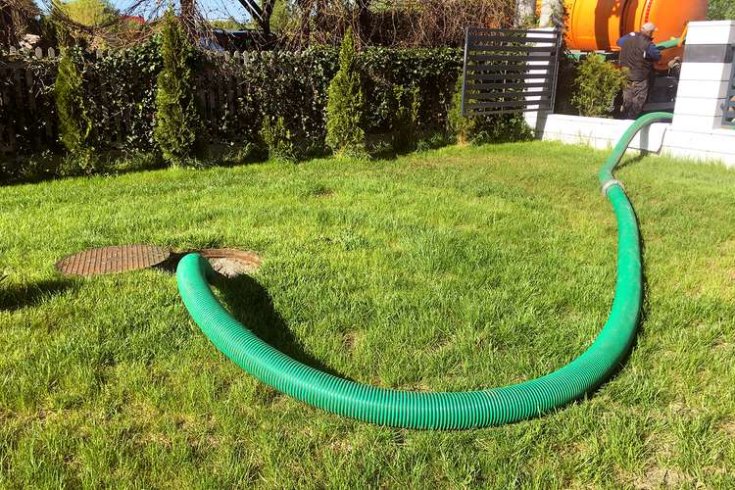
18
Septic systems are a critical component of many homes and businesses, but they can come with some unpleasant odors. These odors can be embarrassing, uncomfortable, and even dangerous, so it's essential to address them as soon as possible. In this article, we'll explore some of the ways to get rid of septic odors and ensure your septic system is functioning correctly.
First, it's important to understand why septic odors occur. These odors can be caused by a variety of factors, including clogs or blockages in the pipes, a full or overflowing tank, a damaged tank, or a problem with the drain field. In some cases, the odor may be due to a simple problem like a dried-out trap or a forgotten piece of food in the garbage disposal.
The first step in getting rid of septic odors is to identify the source of the problem. This can often be done by a quick inspection of the system or by contacting a professional septic company. A trained professional from Charlotte Septic Pros can assess your system, identify any problems, and provide recommendations for fixing the issue.
One common solution for septic odor problems is septic tank pumping. A septic tank should be pumped regularly, typically every three to five years, to ensure it is functioning correctly. If the tank is not pumped, solids can build up and block the system, leading to unpleasant odors and potential system failure. Septic tank pumping can help to remove any excess waste or buildup that may be causing the odors.
Another solution for septic odors is to use a septic system treatment. These treatments are designed to break down organic matter in the septic system and promote healthy bacterial growth. Using a septic system treatment can help to eliminate odors and improve the overall health of your septic system.
In addition to septic tank pumping and treatments, there are several other steps you can take to prevent septic odors. One of the most important is to avoid putting anything into your septic system that can clog or damage the pipes. This includes things like grease, oils, feminine hygiene products, and non-degradable materials like plastics. Be sure to dispose of these items properly in the garbage.
You can also try using products that are specifically designed to eliminate septic odors. These products come in a variety of forms, including sprays, granules, and tablets. They work by neutralizing the odors and promoting healthy bacterial growth in the septic system. When using these products, be sure to follow the instructions carefully and avoid overuse, as this can actually harm the system.
Finally, it's essential to maintain your septic system properly to prevent future odors. This includes regular inspections, maintenance, and cleaning by a reliable septic company. A professional can identify any potential problems before they become major issues and provide recommendations for preventative measures.
Septic odors can be a nuisance and a health hazard, but there are several solutions available to eliminate them. By identifying the source of the problem, performing regular septic tank pumping, using septic system treatments, avoiding clogs and damage to the system, and using products designed to eliminate odors, you can ensure your septic system is functioning correctly and free of unpleasant odors. Remember to consult with Charlotte Septic Pros for guidance on maintaining your septic system and to address any potential problems before they become major issues. With a little attention and maintenance, your septic system can continue to serve you and your family for many years to come.

28
Why Is Sewage Backing Up into My Tub? When wastewater starts rising into your bathtub, it’s more than just unpleasant—it’s…
Read more
22
Can Bacteria Additives Eliminate the Need for Pumping? If you own a home with a septic system, you’ve probably seen…
Read more
12
A single slow drain in your home can feel like a minor inconvenience. Maybe the sink takes a little longer…
Read more
05
Are Slow Drains a Septic Issue or Just a Clog? Slow drains are one of those household problems that start…
Read more
02
What Septic Service Techs See That Homeowners Miss Most homeowners only think about their septic system when something goes wrong.…
Read more
21
Simple Habits That Protect Your Septic System A well-functioning septic system does its job quietly, but the moment something goes…
Read more
14
Pump Now or Pay Later: The Real Cost of Skipping Maintenance A properly functioning septic system is easy to forget…
Read more
11
Why Your Septic System Always Acts Up at the Worst Time Homeowners often feel that septic problems strike at the…
Read more
04
Early Warning Signs Your Septic Tank Needs Pumping For homeowners who rely on a septic system, routine maintenance is not…
Read more
29
Why Does My Septic System Smell Fine One Day and Terrible the Next? If you own a home with a…
Read more